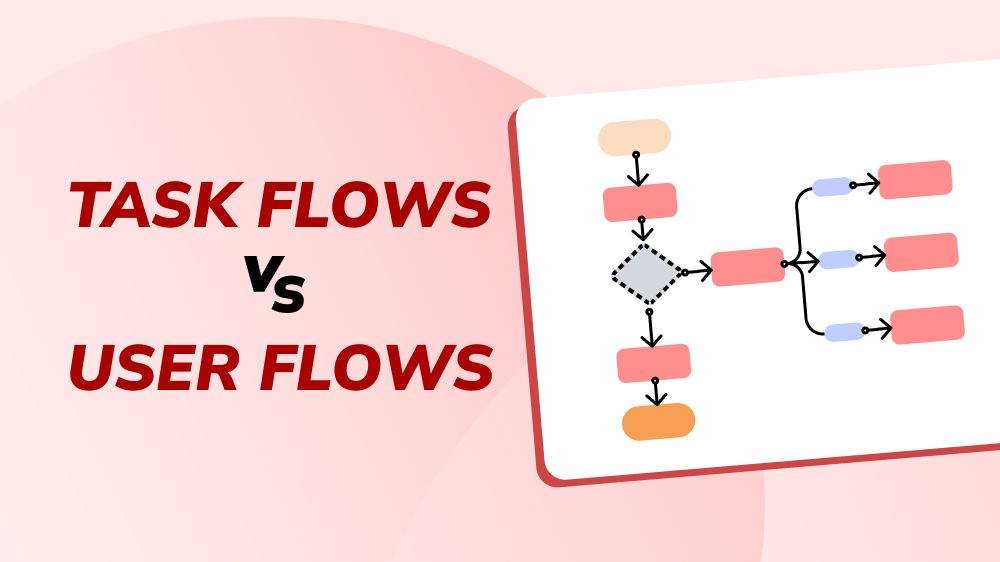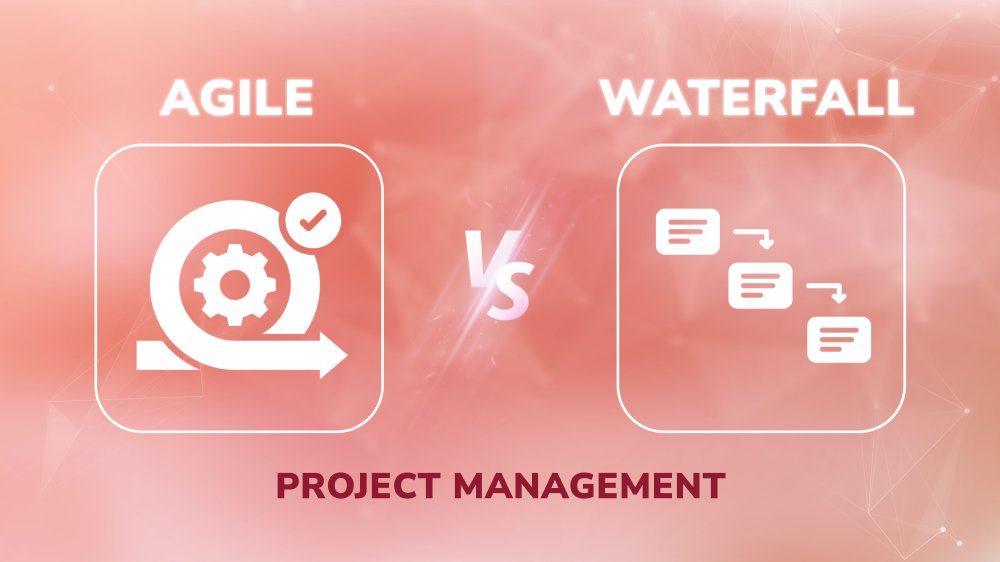Software Development Plan: Benefits & Steps to Craft Your Efficient Project Plan

Content Map
More chaptersThe global size of the custom software development market is expanding immensely, with no surprise, as it has a lot of benefits to offer for companies. It was valued at $35.42 billion in 2023 and is anticipated to thrive at a CAGR of 22.5% from 2024 to 2030, according to Grand View Research.
Although software engineering is worth the investment, it will be a high-risk venture for anyone stepping in without a proper plan in the play. If you are looking to build successful custom-made software products, you must lay down an efficient plan for it first. This article shall be your aid in the initial stages of your project and will provide step-by-step guidance for that.
Key Takeaways:
Software development planning is the prerequisite stage before a project can proceed any further from an idea on paper to fruition, and this process must be done after eight fundamental steps as below:
- Step 1: Project scope definition
- Step 2: Analyze your resources and budget allocation
- Step 3: Define the software development process and methodology
- Step 4: Assemble a team and establish roles and responsibilities
- Step 5: Consider outsourcing if needed and get a partner
- Step 6: Measure, track, and maximize progress
- Step 7: Review and finalize the plan
- Step 8: Revise and modify the plan as needed
What Is a Software Development Project Plan?
In the simplest terms, a software development plan (SDP) is merely an overview created to map out all the phases in a software development life cycle, ranging from ideation, design, and development to testing, deployment, maintenance, and iterative improvements. It plays an essential part in project management and serves as the roadmap for completion. It comprises documents outlining the project scope, objectives, timeline, tasks, budget, resource estimations, roles and responsibilities of group members as well as risk management and contingency plans.
The set goal of a typical software project plan is to help key stakeholders and project team members comprehend what needs to be done and make certain that all project milestones (with actual performance metrics) are accomplished in the correct order. At the end of the day, software development project plans keep everything going on the right track and avoid going awry.
Do remember that software development project planning is an ongoing process. And it should be well-thought-out and fixed. However, it does not necessarily mean unchangeable. On the contrary, it should be flexible enough to be modified and adapted to meet the changing conditions of the entire software development process.
Usually, a project manager will be accountable for developing and implementing the plan. He or she will ensure that the project schedule is strictly followed and all project participants (stakeholders, project managers, software developers, etc.) are on the same page and working toward success.
Why Need a Well-crafted Software Project Plan?
Is a software development plan important? Certainly!
With a majority of companies implementing agile development methods for their projects as current, a lot of opinions are spoken about whether or not project planning is still relevant. In reality, the answer is a resounding yes.
A well-thought-out plan is essential for the success of any software development project. A good one can provide numerous advantages for the development team, stakeholders, and also the overall project progress:
Serve as a Clear Project Roadmap
As stated earlier, it is a must-have for all software projects to avoid confusion and ensure everyone stays on track. It clearly defines each development phase and provides guidance on what should be done at each stage. Having a well-defined plan in place can make a complex process less complex.
In actuality, it is good to assemble an effective software development team; however, your effort may be in vain without an efficient project plan. Thus, it is highly advisable to start from a well-structured and detailed SDP.
Enhance Communication

Effective communication is the key to any project, and an excellent project plan aids this greatly.
It ensures that all team members are aware of their roles and responsibilities, as well as the objectives of the project. In a clear and concise manner, the software development plan outlines the deadlines and milestones for each individual and task thereby keeping everyone accountable.
Moreover, each individual within, whether an internal or even external team (Outsourced), can refer to the plan as a central reference point for all related information whenever there are changes or updates in project timelines, requirements, scopes, or resources.
Such a plan normally consists of change management procedures for another purpose - guarantee stakeholders are notified of the latest project progress and capable of giving feedback along the way.
Ease Project Monitoring
It offers the management team and stakeholders, as well as software development project teams, a clearer vision of the current development progress. By providing weekly or monthly reports as well as task status updates, they have access to all information in real time and keep track of the project deadlines shortly so that they act accordingly in a timely manner.
Make Accurate Estimations
More than mapping out all project development tasks, budgets, and resources beforehand, a plan brings forth an overview of the project lifecycle and actual performance metrics, such as effort estimation, cost analysis, etc. With details and insights being provided, project managers can make better-informed decisions in regard to resource allocation and budgeting.
Also, managers/leaders are able to predict potential shortages of IT manpower or software tools so that they can prepare solutions for efficient project completion, such as leveraging staff augmentation or software development outsourcing services. This implies that the projects are more likely to stay on time and budget.
Last but not least, you better control the project budget and avoid possible technical debt in the long run.
Simplify Project Organization
The entire project development cycle and tasks can be managed in a much more organized way, of course, with a good plan.
Like a compass for travelers, a solid plan helps the whole development team to be on board, from the project manager/leader to each and every team member, to ensure all involved are proceeding in the same direction.
Not only can developers be on the same page, but they can also track their own progress, the time and effort spent on each task, and the amount left to complete. All workflows go as in systematically. Productivity and efficiency are promised for sure.
Optimize Time Management
A good plan is paramount to successful time management and project delivery. It effectively tracks all the activities, tasks, and deadlines that have been set to ensure everything is completed on time when planned.
Facilitate Change Management
As all software development projects are prone to change, having a plan can make the process much more efficient and less time-consuming. By following a plan, teams can quickly adapt to any changes and ensure the project goes on track. Unexpected incidents and last-minute changes are less likely to occur when you are well-prepared for them in advance.
Risk Management

As we already mentioned, a software development plan is set to lay out everything necessary for the preparation phase of a project. Hence, potential risks and hurdles are already calculated and dealt with beforehand.
Frankly, no risk mitigation strategies are flawless and 100% comprehensive, so it is not certain that you can conduct a project effectively with no risks, but the plan can help minimize the likelihood and impacts of any potential risks that may arise.
Create an Effective Software Development Plan within 8 Essential Steps
Once again, we have to emphasize the fact that the software project planning phase is imperative in your SDLC, no doubt. Unfortunately, it is no simple task to create a workable one, and it requires careful consideration across a variety of factors.
Business owners can leverage an available software development plan template to save effort in the planning process. To create a software development plan that works for your specific project requirements, here are the steps to follow:
Interpret Your Project Goals & Translate Them into a Detailed Project Description

The most basic and essential step in planning any software development project is deciding on the input. This planning stage has a lot to do with project analysis and specification, so it should involve all stakeholders sitting down together to discuss the project in detail.
Your project description should provide all the necessary details, such as the scope of work, objectives, development timeline, expected outcomes, risks to manage, and all other related information. There should be one senior project manager to finalize the first visualization of a concise project plan.
Analyze Your Resources & Budget Allocation

The next step is to identify and assess all available resources – human resources, including technical experts and other staff members, as well as financial resources, such as cost of development, maintenance, etc.
A good plan should include a detailed budget allocation and the timeline for each task or activity. Set aside a contingency fund that can be utilized in case of any unforeseen circumstances.
Define Your Software Development Process & Methodology
One of the most critical steps when planning software projects is selecting the proper software development process and methodology to follow throughout your project implementation journey.
It not only helps identify what methods work best but also ensures that everyone is on the same page when starting a new project. A few popular methods include Agile, Scrum, Waterfall, and DevOps.
Assemble a Team & Establish Roles and Responsibilities

In software development, the size and structure of the team can vary depending on the project’s scope and complexity. But there is one certain thing: You need a capable and responsible team to deliver successful results and move the project forward. To do that, they have to know exactly what they are supposed to do in different project stages.
Therefore, it is a must to break down development phases into smaller parts or modules so that they can be assigned to different team members with appropriate roles and responsibilities. It is essential to figure out who will oversee the project, who will develop it, who will test it, and so on. And make sure to assign roles that match each team member’s skillset and expertise.
Consider Outsourcing If Needed & Get a Partner
Leveraging software development outsourcing services for the project’s success is no secret. By outsourcing the business processes that are not the forte of your in-house teams, business owners can access a number of advantages instead of grappling with resource constraints.
Therefore, if needed, consider outsourcing to get a partner that can contribute its technical and managerial capabilities towards the success of your project. Having a reliable outsourcing partner can help ensure quicker development and delivery of the software.
Measure, Track, & Maximize Progress
One step that cannot be missed out in software development plans is measuring and tracking the progress during the whole project timeline. Establish a set of KPIs that can keep track of the project’s progress and avoid delays.
Regular checks on the progress, analytics, customer feedback, etc., can help business owners measure whether their plans are working successfully. Moreover, with accurate metrics in place, you can make timely decisions if changes have to be made in order to maximize progress or avoid delays.
Review & Finalize the Plan

Once all the above steps are completed, review and finalize the software development plan. It is important to ensure that all stakeholders have a clear understanding of the project before it starts.
The reviewed plan should be shared among all team members so everyone is on board with the latest updates and info as well as aware of any potential risks associated with the project.
Revise & Modify the Plan as Needed
Software development projects rarely turn out as planned, and modifications may be needed along the way. And as aforementioned, no plan should be rigid; it has to have enough flexibility to be amended as needed. Therefore, review the plan and revise it regularly so that it accommodates changing customer needs or any other new challenges. Note that changing the plan too often is not a wise decision as well.
After putting together a detailed software development plan, business owners can now move forward with their projects, knowing they are in safe hands. A planning process done right is one of the keys to the successful delivery of any software project.
Fear not if you are not confident in crafting your own plan because we are here to help. Orient Software is a trustworthy partner for IT outsourcing services. As a leading service provider based in Vietnam, we have built a history of 20-year experience and still stayed relevant in the current IT industry.
With our aid, you can plan your software development project toward success and so much more. On your journey of developing software, we can accompany you in various project tasks, resolve any issues, and deliver guidance on the project development. Tell us your story, and we will help you make it real. Let’s schedule a meeting.







